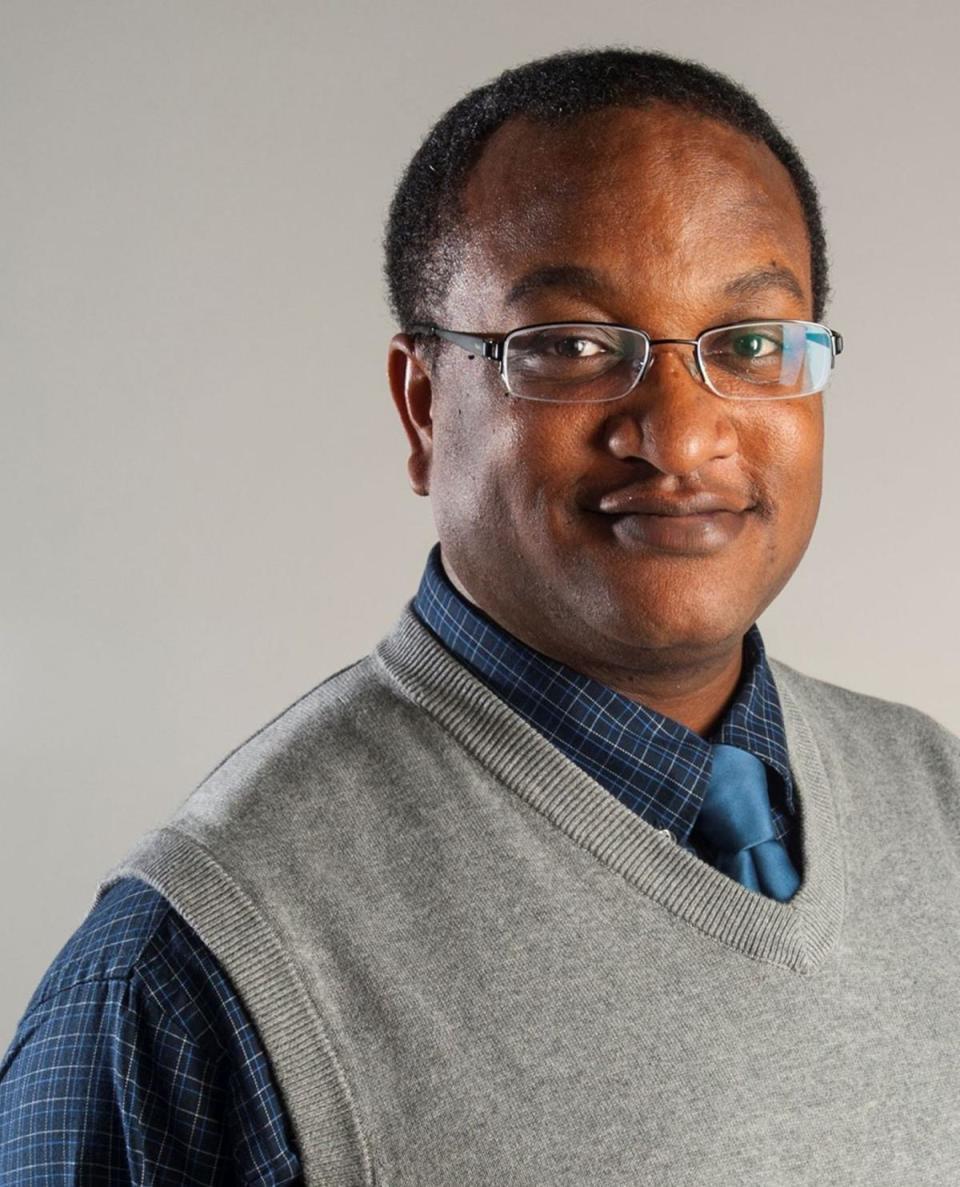Race and O.J. Simpson: Where I was and how I felt when the verdict came down
- Oops!Something went wrong.Please try again later.
- Oops!Something went wrong.Please try again later.
O.J. Simpson’s death at age 76 left me with emotions that are hard to explain.
I think he was guilty, but his passing from prostate cancer did not put me in a celebratory mode on social media like it did for some folks.
The Simpson trial was always more complex for me than a murder case. Most Black Americans did not experience the 1995 trial in the same way as white America, and reaction to events and the verdict split mostly on racial lines.

Simpson a former NFL football star, actor and celebrated ad pitchman who stood accused in the brutal, knife murder of his ex-wife, Nicole Brown Simpson and her friend, Ron Goldman. To me, the whole thing was a uniquely American tragedy that encompassed many of the country’s biggest obsessions: Race, sports, money, celebrities — and it was all televised.
More: Pitts: Can policing look different in Fayetteville? A Durham-based documentary sets the stage.
I followed the case religiously, all the way from the slow-speed Bronco chase on June 17, 1994, to the not-guilty verdict on the afternoon of Oct. 3, 1995, where I remember the forewoman stumbled over Simpson’s unusual first name, “Orenthal.”
Split screen, split nation
I will never forget the split screen TV image that showed the reaction of Howard Law students vs Harvard Law students in different coffee shops at the moment the verdict came down. At Howard, a historically Black university, the students whooped and clapped like they had won a national championship. At Harvard, the scene was funereal — full of disbelief and shock.
I was living and working in the D.C. area at the time, and I remember how quiet my mostly white newsroom was as we all gathered around the TVs.
I don’t recall saying anything. But my heart leapt like the Howard students.
I remembered that one woman in ou4 newsroom, who shook her head at the verdict, had also been one who declared O.J. guilty at the moment of the Bronco chase. Because: “Why would he run unless he did it?”
Two views on justice
What Black people and white people believe about the American justice system heavily influenced those students’ reactions, and my own.
Much of white America seemed unable to process the justice system failing in such a way, but we knew the system failed both historically and routinely — and people who looked like us were typically the victims. Black America, generally speaking, believed that the case simply had not been proved beyond a reasonable doubt. I would argue this, too, was influenced by our differing views on American justice.
The rare acquittal of a Black man in a case like this only threw into sharp relief the many thousands of situations over time where white people killed a Black person and nobody paid any kind of debt to society or to anyone else.
White killers going free
We could talk about the more than 4,700 Black Americans who were lynched in the Deep South from 1882 to 1968. The vast majority of killers never went to court; those who did were cleared by all-white juries. No debts paid.
We could talk about 14-year-old Emmett Till. He was brutalized and murdered in 1955 after Carolyn Bryant Donham, then 21, accused him of flirting with her. The killers walked free after a sham trial and would later confess in a magazine interview. Donham lived to the advanced age of 88, dying in Louisiana last year. No debts paid.
We could even bring it locally here in Fayetteville to when Archibald Beebe was murdered downtown in 1867, near the Market House, a building where enslaved Black people were sold. A jury actually DID convict the killers. President Andrew Johnson gave them full pardons.
No debts paid.
Frozen in time
On Thursday, Journalist Bomani Jones posted on X, formerly Twitter: “Today, we will get the answer to the age-old question: what would twitter have looked like in 1995?” He is right and not in a good way. I think the discourse after Simpson's death, which his family announced on X, feels frozen in time from that era. Many of our issues with race relations remain unresolved.
today, we will get the answer to the age-old question: what would twitter have looked like in 1995?
— bomani (@bomani_jones) April 11, 2024
This is because we cannot have the conversation we should have about race unless we talk about all the things, not just ones that leave our comfort level unperturbed. Instead, some white Americans are pursuing an opposite impulse, pushing hard to remove school curriculums and books that tell more of the Black story and how it is inextricably tied in with the American story.
It is not a coincidence that anti-Diversity, Equity and Inclusion initiatives followed right behind the Black Lives Matter and George Floyd movements. It is similar to the reason Trump followed the historic election of President Barack Obama.
We keep backsliding because we won’t talk about it.
In many ways, we are still living in the O.J. Simpson era, as the man is put to rest.
Opinion Editor Myron B. Pitts can be reached at mpitts@fayobserver.com or 910-486-3559.
Note: A previous version of this column contained errors related to the Archibald Beebe murder.
This article originally appeared on The Fayetteville Observer: For Black Americans, the OJ Simpson case was bigger than him

